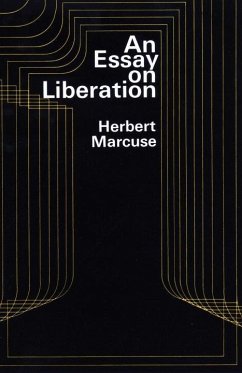
Landmarks of Scientific Socialism: "Anti-Duehring" (eBook, ePUB)
Enriched edition. A Marxist Critique of German Philosophy and Socialist Thought
Kommentar: Ramsey, Kelsey / Redaktion: Good Press; Lewis, Austin

PAYBACK Punkte
0 °P sammeln!
In "Landmarks of Scientific Socialism: 'Anti-Duehring,'" Friedrich Engels delivers a rigorous critique of Eugen Dühring's philosophical and socialist perspectives, offering a foundational text that addresses the theoretical underpinnings of scientific socialism. Engels employs a clear and didactic literary style that systematically dissects Dühring's ideas, while articulating the principles of dialectical materialism and the nature of class struggle. This work is not merely polemical but also serves as a pivotal intersection in the development of socialist thought, blending philosophical rig...
In "Landmarks of Scientific Socialism: 'Anti-Duehring,'" Friedrich Engels delivers a rigorous critique of Eugen Dühring's philosophical and socialist perspectives, offering a foundational text that addresses the theoretical underpinnings of scientific socialism. Engels employs a clear and didactic literary style that systematically dissects Dühring's ideas, while articulating the principles of dialectical materialism and the nature of class struggle. This work is not merely polemical but also serves as a pivotal intersection in the development of socialist thought, blending philosophical rigor with practical implications, thereby situating itself within the broader 19th-century socialist context, influenced heavily by Marxist principles. Friedrich Engels, a close collaborator of Karl Marx, brought a wealth of personal and intellectual experience to this work. Growing up in a bourgeois family yet sympathizing with the plight of the working class, Engels' path was shaped by his exposure to industrial capitalism and his lifelong commitment to socialist ideals. His partnerships with Marx in developing a scientific framework for socialism significantly influenced his writings, including the critique presented in "Anti-Duehring." This book is essential for readers seeking a profound understanding of socialist theory and philosophy. It not only demystifies complex ideas for contemporary audiences but also provides crucial insights into the debates that shaped modern socialism. Readers will benefit significantly from Engels' clarity and critical engagement, making it an indispensable text for scholars, students, and anyone interested in the philosophical foundations of socialism. In this enriched edition, we have carefully created added value for your reading experience: - A succinct Introduction situates the work's timeless appeal and themes. - The Synopsis outlines the central plot, highlighting key developments without spoiling critical twists. - A detailed Historical Context immerses you in the era's events and influences that shaped the writing. - An Author Biography reveals milestones in the author's life, illuminating the personal insights behind the text. - A thorough Analysis dissects symbols, motifs, and character arcs to unearth underlying meanings. - Reflection questions prompt you to engage personally with the work's messages, connecting them to modern life. - Hand-picked Memorable Quotes shine a spotlight on moments of literary brilliance. - Interactive footnotes clarify unusual references, historical allusions, and archaic phrases for an effortless, more informed read.
Dieser Download kann aus rechtlichen Gründen nur mit Rechnungsadresse in A, B, BG, CY, CZ, D, DK, EW, FIN, F, GR, H, IRL, I, LT, L, LR, M, NL, PL, P, R, S, SLO, SK ausgeliefert werden.














